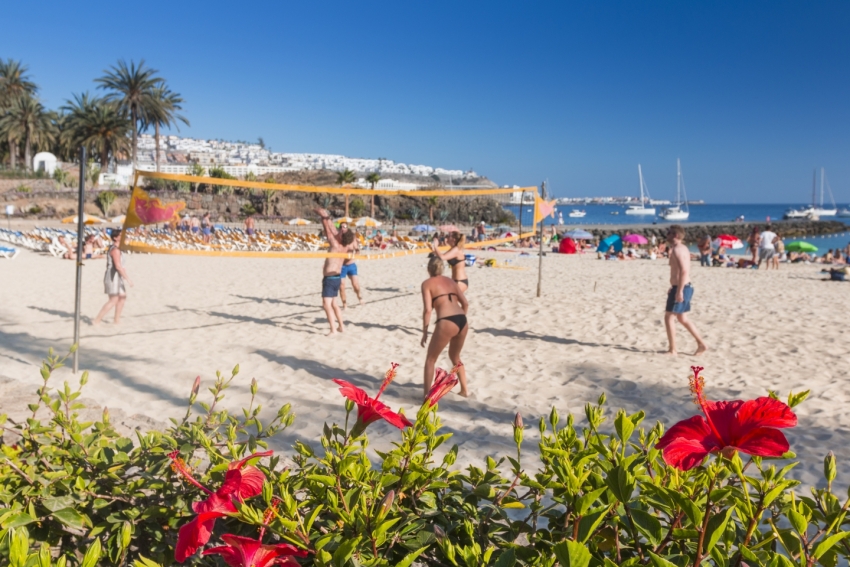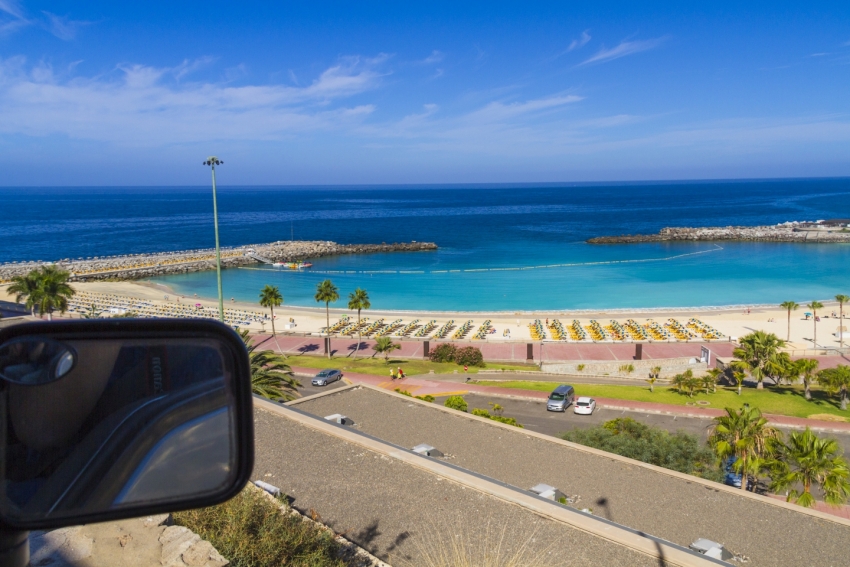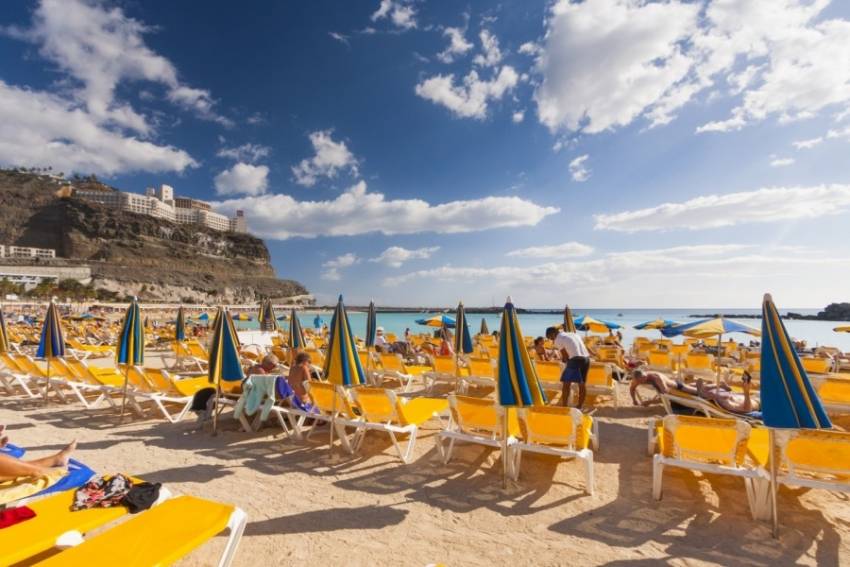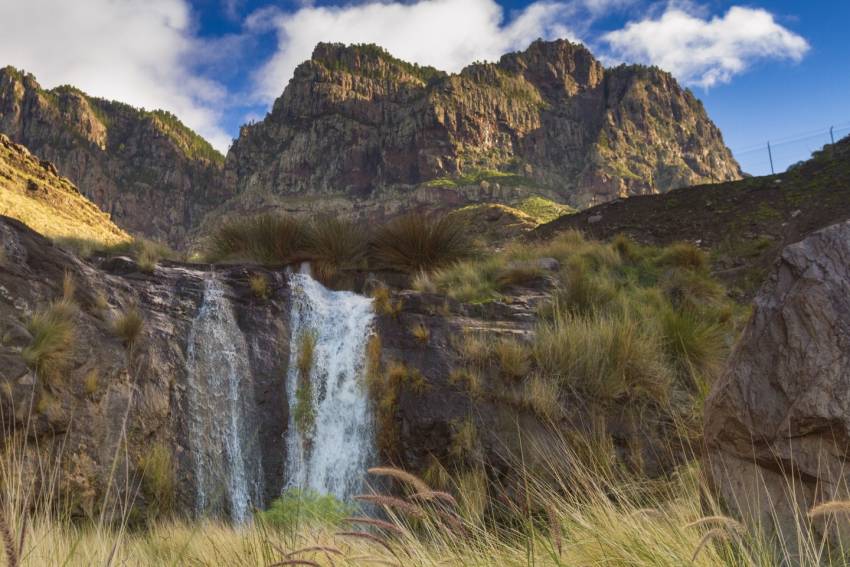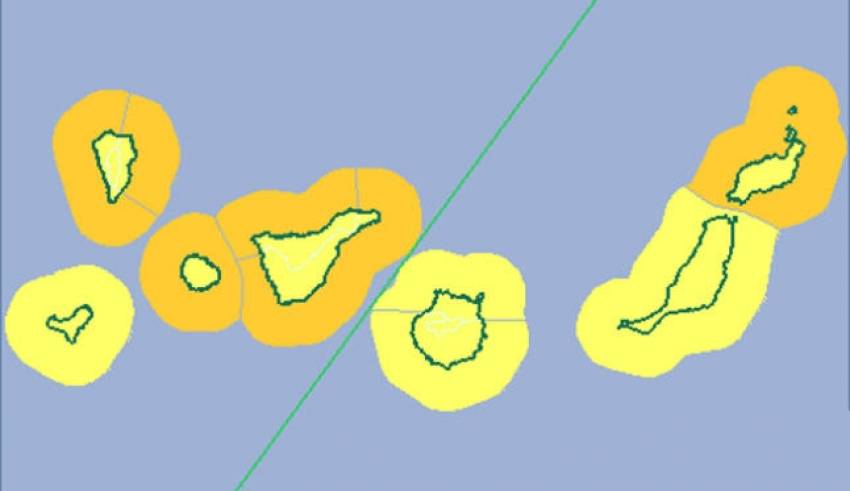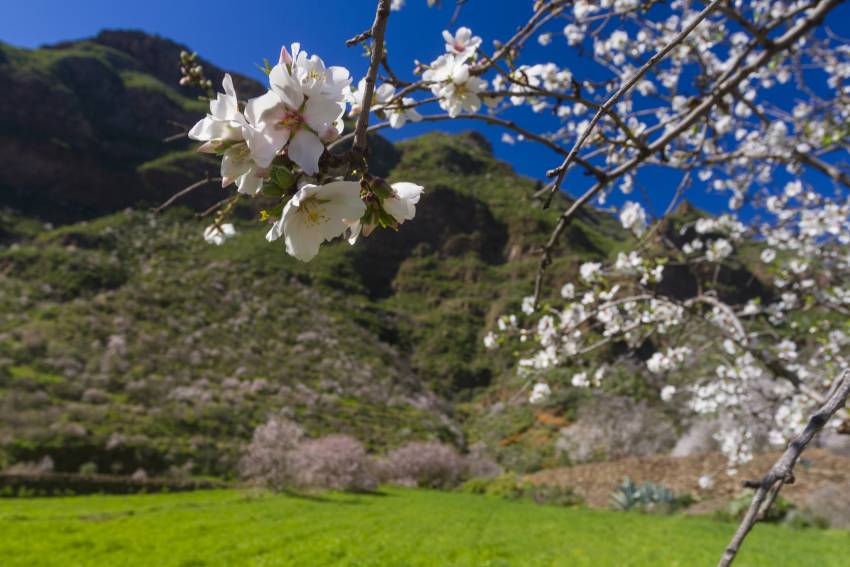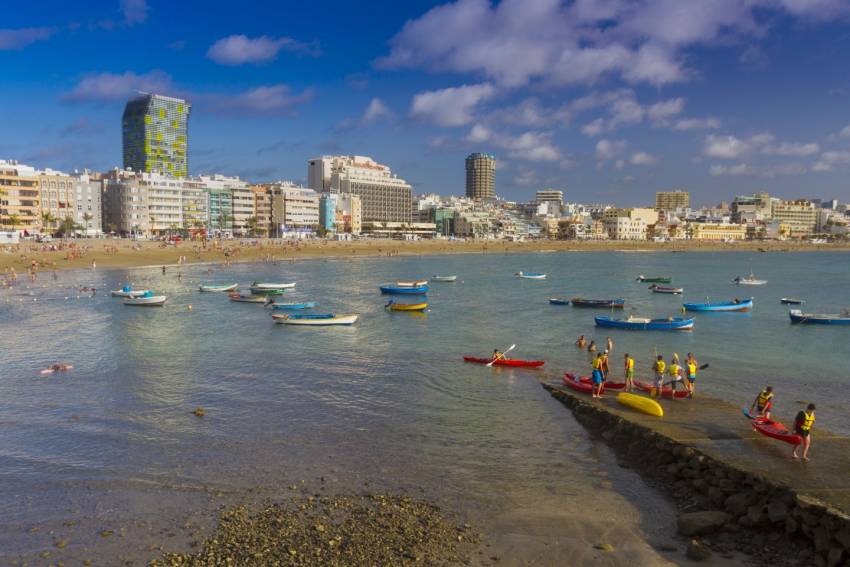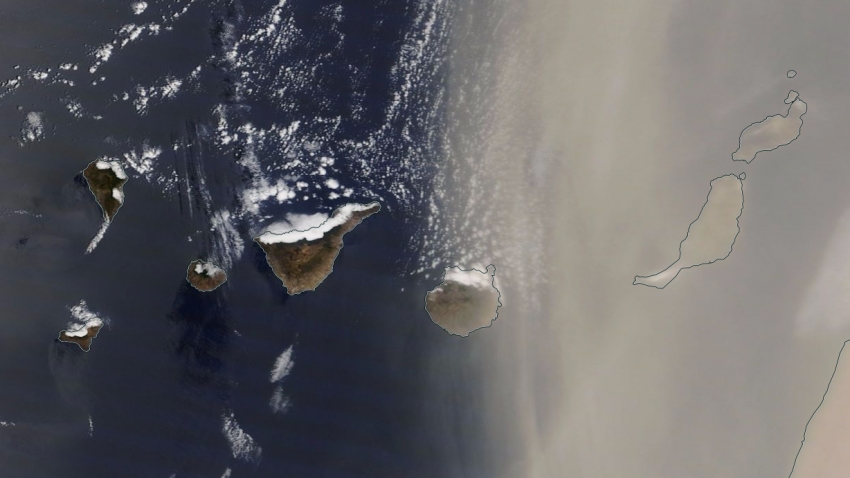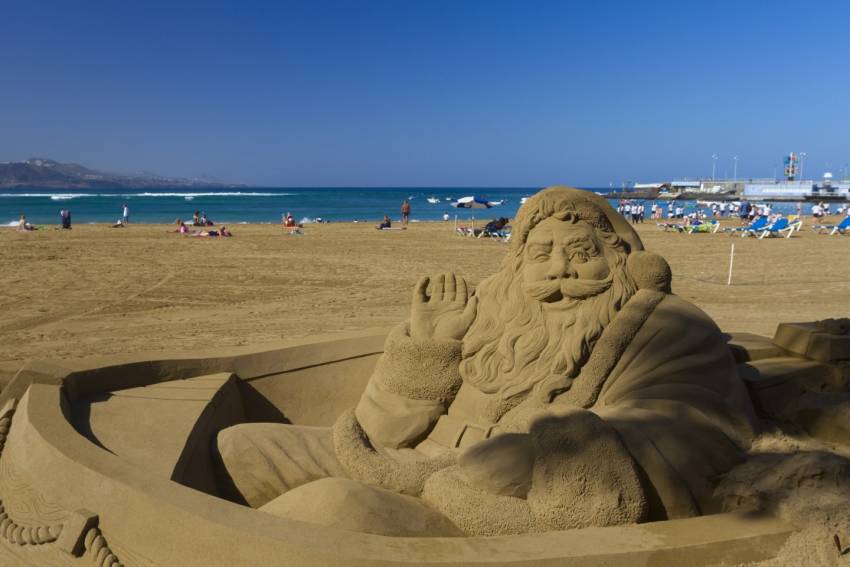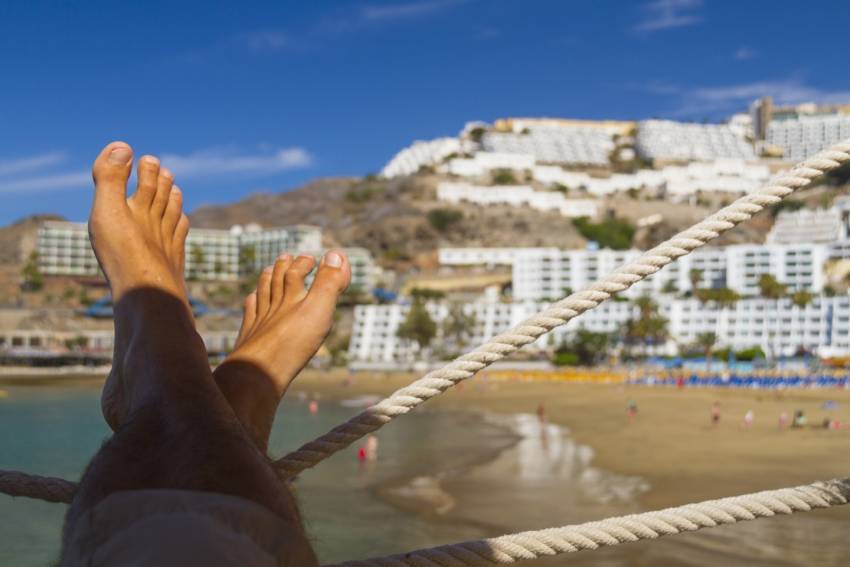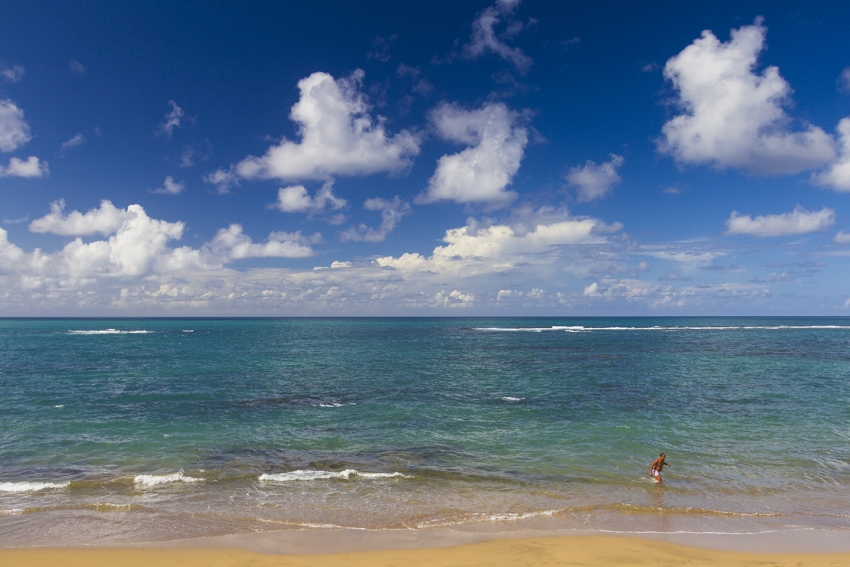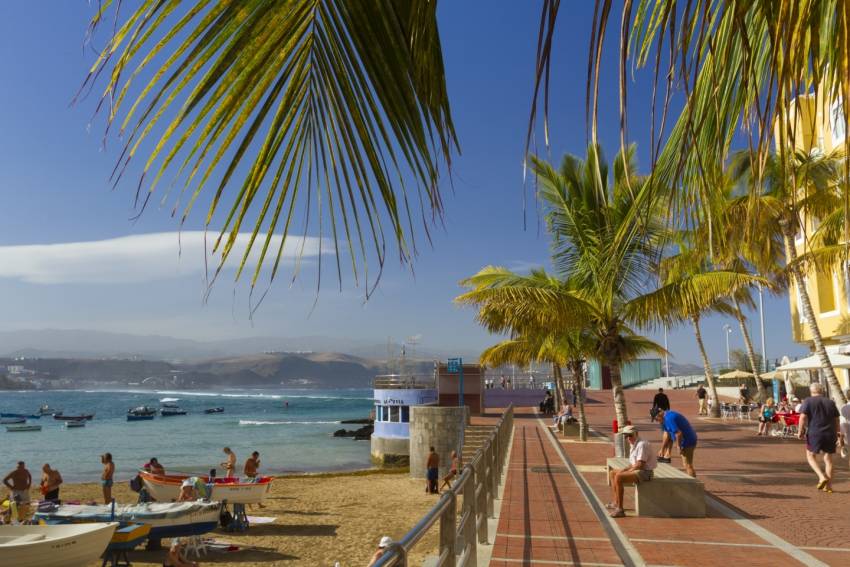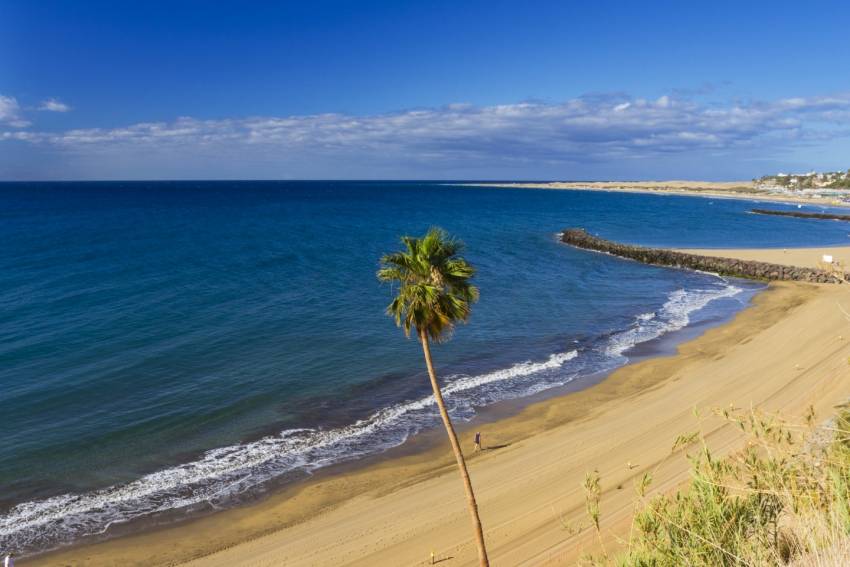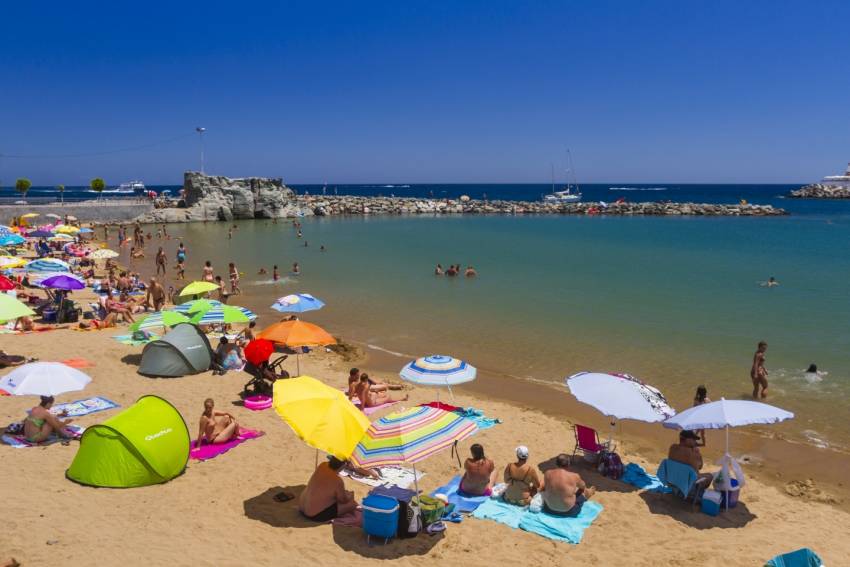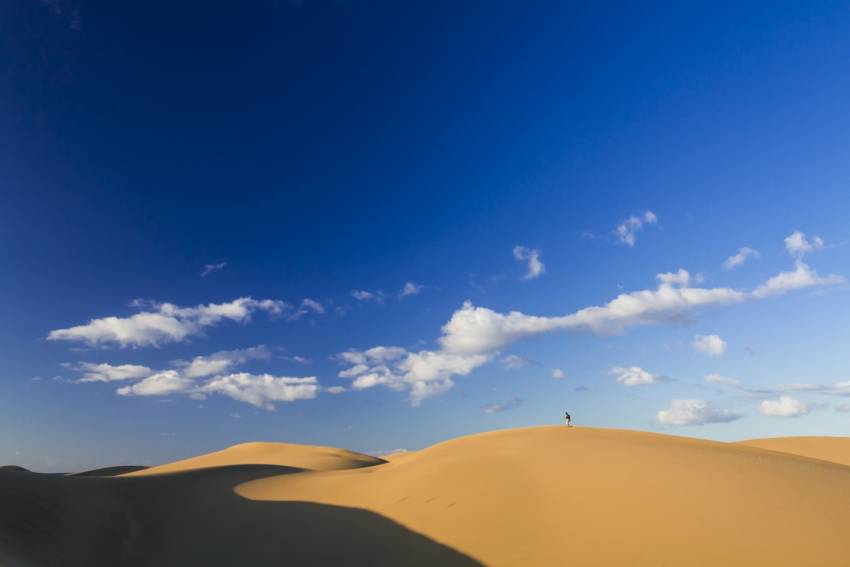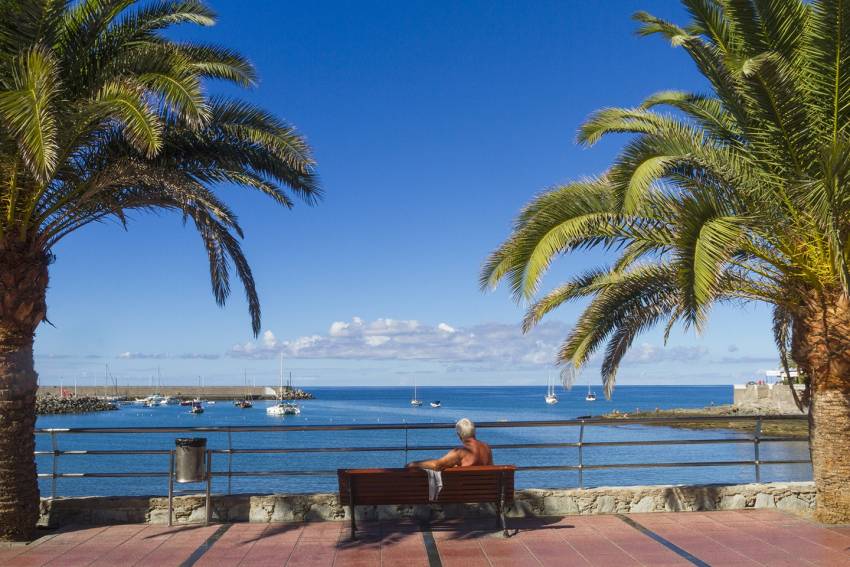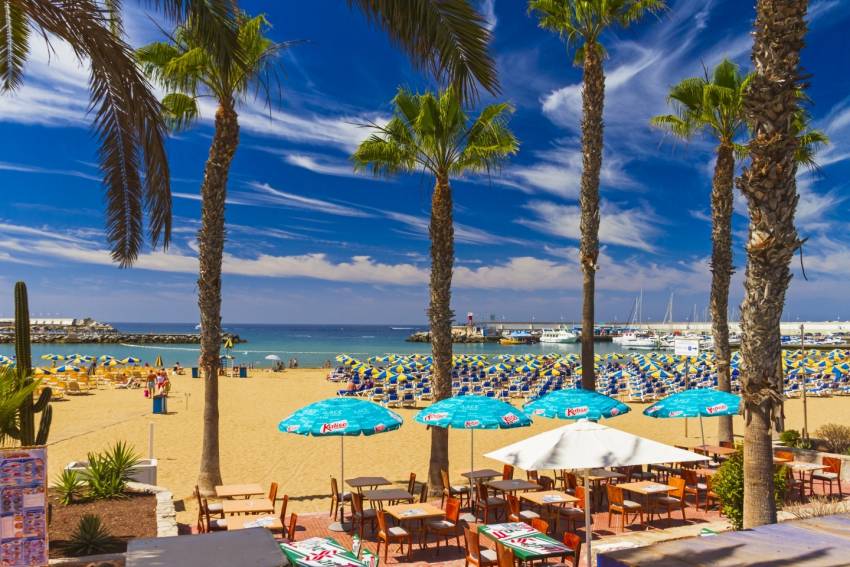Mercury To Hit 30ºC In The Canary Islands Over Easter
Easter is set to sizzle in Gran Canaria and the Canary Islands with temperatures expected to hit 30ºC. Not bad for the beginning of April.
Canary Islands On Alert For High Ultraviolet Light Levels This Week
Ultraviolet light levels are expected to be at 'Very High' levels this week due to clear skies.
The Sunniest Places In Gran Canaria
Gran Canaria gets an average of 320 sunny days every year but it's a high island with lots of microclimates so the weather varies quite a bit. Here's our guide to picking the sunniest spots.
Raining In Gran Canaria? Rent A Car And Go Waterfall Hunting
If you're in Gran Canaria and it's raining don't sit by the pool pining for the sunshine: it'll be back sooner than you think. Instead, take advantage of the rain and get up into the highlands to see one of Gran Canaria's rarest and most spectacular natural events.
Wind And Wave Alert For Gran Canaria
Winter just won't give up this year in Gran Canaria and the Canary Islands. The islands are on alert from high winds and big waves on Tuesday 24th and Wednesday 25th February.
Gran Canaria is not expected to get the worst of the waves or the wind but is expected to take a battering on Wednesday with gusts up to 65km per hour.
Please stay away from the shore on rocky coasts and don't walk near drop-offs up in the mountains.
Detailed info in Spanish here
Is It Cold In Gran Canaria In Winter
Cold is relative. It was the coldest winter for 10 years in 2014 but day temperatures were always above 20ºC. The south of the island had a couple of cloudy weeks but other than that it was beach weather most days.
The south of the island had a couple of cloudy weeks but other than that it was beach weather most days.
Compared to anywhere else you can fly to easily during the winter, Gran Canaria has the best weather. The south of the island is sunny for over 320 days per year and is shelñtered from the wind.
What's The Weather Like In Gran Canaria During My Holiday?
It's likely to be sunny but we don't know exactly. When are you coming?
Check our weather section for detailed weather forecasts for each month, as well as lots of useful info about the seasons and the weather in the resorts.
What's On In Gran Canaria In January
January may be the height of winter across Europe but here in Gran Canaria there's plenty of outdoor events in the sunshine. If you're on the island this month, here's the top things to see and do.
Gran Canaria Seasons And The Best Times To Visit
The best time to visit Gran Canaria, without a doubt, is now. However, here's what to expect at any time during the year.
When is the best time to visit Las Palmas
There’s no bad month to visit Las Palmas city as its climate is one of the world’s best, but the weather does have its quirks. Here’s a season-by-season guide to the weather in Gran Canaria’s capital.
When the Sahara Burps: Calima Dust & Heat In Gran Canaria
When the Sahara Desert burps its sends a blast of hot, dusty air out over the Atlantic Ocean and the Canary Islands. Temperatures can reach 47ºC.
Christmas Sun: Gran Canaria Weather in December
December is often a sunny month in Gran Canaria although we do get a few days of rain almost every year.
Winter, Allegedly :Gran Canaria Weather in November
Winter in the Canary Islands is relative. While there are an average of three rainy days in November you get six hours of sunshine every day. Day temperatures are about 24ºC on average and the minimum temperature at night is 18ºC. Days when the mercury hits 30ºC are common.
The sea is still warm in November and is 22ºC on average. Its much warmer in shallow water and the sun is strong enough to keep the swimming pools at an ideal temperature.
Walkers flock to Gran Canaria in November as the top of the island is still warm and sunny. You do get cold, cloudy days in the Cumbres so bring a fleece or a windcheater. You still need a hat and plenty of water as the sun beats down on hot days.
You can sit o the beach in Gran Canaria in November and it still feels like midsummer anywhere else. It cools down as the sun sinks but you are guaranteed a tan if you come to Gran Canaria in November.
Even Better: Gran Canaria Weather in October
October is our favourite month in Gran Canaria. After a long, hot summer the temperatures start to drop and the sky is blue and full of pretty little clouds. With average day temperatures at 26ºC and the lows at 20ºC, the weather is as close to perfect as it gets.
Perfect Times :Gran Canaria Weather in September
September in Gran Canaria is the islands real summer month. The Trade winds die down and the whole island is sunny and hot. We love September because you get lots of little fluffy clouds that are perfect for photography.
The average daily high is 27ºC and the lows are over 24ºC. You can expect an average of eight hours of sunshine every day and just one rainy day during the whole month.
The sea in September is at its warmest in Gran Canaria. The average water temperature is 23ºC and it’s almost too warm in the shallow water close to the beaches. You often have to swim out or dive down to find a cool layer.
September is a great month to visit Las Palmas as the clouds that often hang over the city in July and August disappear. Canteras Beach in September is gorgeous with blue skies and calm water. The reef pops right up at low tide thanks to the large Neap Tides so you can swim out and walk along it.
For a last minute summer escape before the start of term, or a sneaky trip just after school has started, Gran Canaria in September is perfect. It’s hot, sunny and the sky is as blue as it gets.
Hot Hot Hot :Gran Canaria Weather in August
August is the hottest month in Gran Canaria with average temperatures of 27ºC and minimum of 22ºC. Most days the temperature reaches 30ºC on the beaches and you can expect 9.5 hours of sunshine every day.
Set To Roast :Gran Canaria Weather in July
With minimum temperatures well over 20ºC and the daily average at 26.5ºC July is a hot, hot, hot in Gran Canaria. The temperature reaches 30ºC most days on the sand and the evenings are perfect for sitting out with a cold beer.
It sounds hard to believe but there are over 300 hours of sunshine in Gran Canaria in July. That’s over 10 hours per day. Sunscreen is essential as a full day of July sun in Gran Canaria burns almost everybody. Even the locals slap it on during the summer.
As for rain in July, it just doesn’t happen!
The sea in Gran Canaria in June is over 22ºC so you can loll in the shallows for hours on end without getting goosebumps. Sometimes you have to swim out into deep water just to find a cool bit.
The mountains in Gran Canaria get hot during July and it can be dangerous to go walking unless you are well prepared. We advise starting as early as possible and being out of the sun by 10.00. Take a hat and sunscreen and plenty of water (a litre an hour). If the island is on alert for high temperatures please don’t go walking as temperatures can reach 40ºC or more and people have died of heat exhaustion.
July is one of the hottest months in Gran Canaria and the beaches are full until well after the sun has set. For an escape to the sunshine, Gran Canaria in July is a sure bet.
Hello Summer: Gran Canaria Weather in May
May is basically summer in Gran Canaria and it’s one of our favourite months. You don’t get the really hot days of summer and the odd puffy white cloud comes along often enough to cool everyone down on the beaches.
It is sunny for 8.5 hours per day on average and there isn’t enough rain for it to register on the statistics. The sea temperature starts to rise and gets to a minimum of 20ºC: That’s about perfect on a hot day.
The average high temperature in May is 23ºC but you can expect days with temperatures above 30ºC almost every week. You might still need a light jumper in the evenings as temperatures drop to a minimum of 17ºC at night.
May is the last month of the official walking season in Gran Canaria as the hills are still green and cool and the island is still green. It’s an excellent month to rent a car or go on an organized trip up into the mountains. It won’t be too hot or too cold and everything looks lush and fertile.
Come to Gran Canaria in May and you get bright sunshine, beautiful scenery and cool evenings. Just what the relaxation doctor ordered!
Getting Hot: Gran Canaria Weather in April
Warming Up to Hot! Gran Canaria Weather in March
March is the last month of winter in Gran Canaria and the island is already warming up fast. The temperature on the beaches can reach 30ºC and the average day temperature is 22ºC. At night it cools down to a minimum of 15.5ºC: That’s cool enough for a jumper or a second layer.
You can sunbathe in Gran Canaria almost every day during March. There are only 3 days rain on average and seven hours of sunshine per day. The sea temperature is 19ºC on average but is warmer in the shallow water by the beaches. We've spent whole weeks on the beach in March with just a couple of cloudy afternoons; They were almost a almost a relief.
March is an ideal month for exploring the island. Everything is green and the wild flowers start to bloom. If you plan to go walking bring a fleece and a waterproof windcheater as it can still be cold up at the top of the island.
March is Gran Canaria’s spring month when everything is green and beautiful and the flowers really come out. It’s an excellent time to visit the island, especially if you want to combiner beach days with some walking or driving about.

